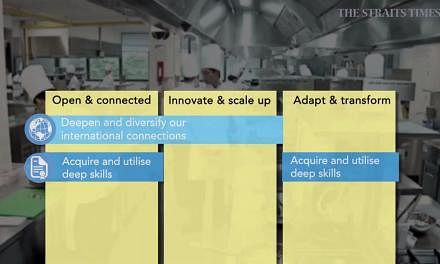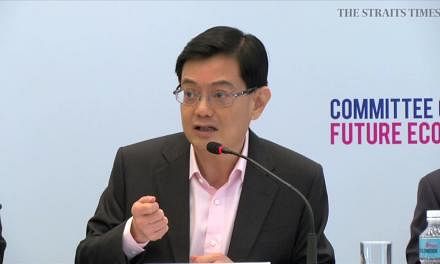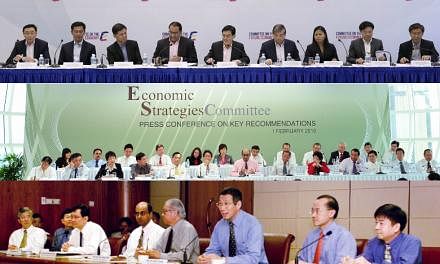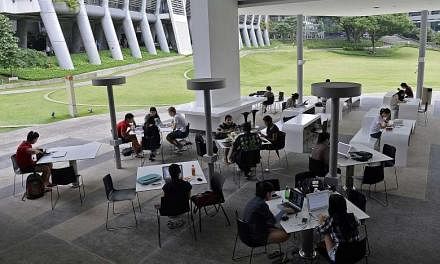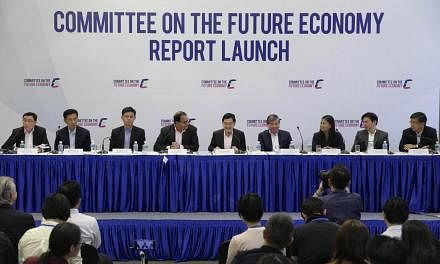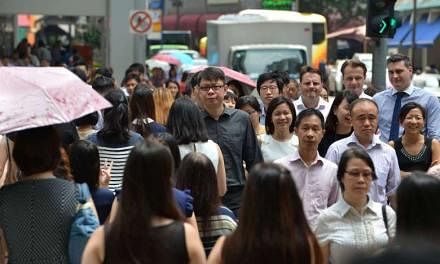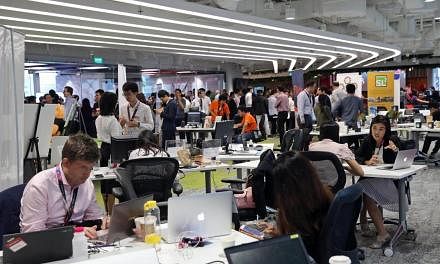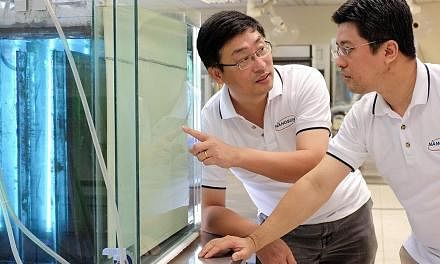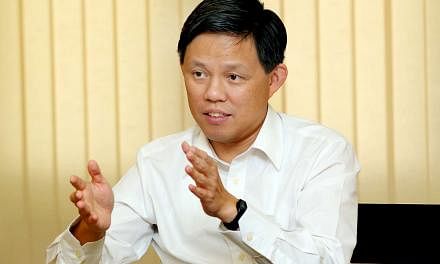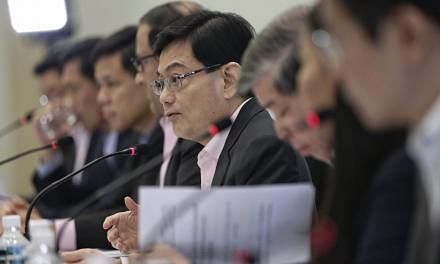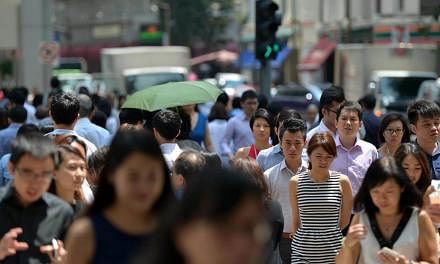SINGAPORE - More can be done to help Singaporeans make lifelong learning a way of life, a move that will build on the momentum of the national SkillsFuture movement, which aims to provide Singaporeans many opportunities to learn and develop their potential.
Ideas such as making more courses modular for working adults and rewarding companies that promote employees based on skills were among recommendations made by the Committee on the Future Economy (CFE) in its report released on Thursday (Feb 9).
Enabling Singaporeans to acquire and use deep skills is among seven strategies set out in the 109-page report to prepare Singapore for the long term.
Since technologies and jobs are likely to change at a faster pace, "we must go beyond the pursuit of the highest possible academic qualifications early in life, to seek knowledge, experience and skills throughout life", said the report.
The deep skills learnt should also be relevant to workers' jobs, it noted.
This culture of lifelong learning and putting that learning into practice will help Singaporeans "adapt and succeed along with transformations in the economy and job market, with ease and confidence".
These are some of the CFE's recommendations on skills:
1. Make it easier to acquire deeper skills
Since personal development has to be balanced with other priorities such as family and career, the Government should work with training providers and institutes of higher learning to roll out more modularised courses.
Modular courses are broken down into segments, making it easier for workers to learn at their own pace, and offer greater flexibility to those juggling work and reskilling. These programmes should be endorsed by companies and approved by the Education Ministry, and also be accessible online.
"Such courses provide Singaporeans with more opportunities to acquire work-related competencies, without needing to disrupt their career or personal commitments, in the way that a full-time course might," the report said.
Skills training under different qualification frameworks should also be more integrated. For example, graduates of SkillsFuture Earn and Learn programmes could progress into applied degrees with relevant modules exempted.
Singaporeans should be better equipped to plan their careers based on their interests, education and training. Useful information could be centralised through the SkillsFuture Individual Learning Portfolio, the committee suggested.
2. Encourage employers to develop staff
The report highlighted the SkillsFuture TechSkills Accelerator, which helps infocomm technology professionals deepen their skills and workers from other industries learn digital skills. It gets employers involved to offer on-the-job training and secondments which ensure trainees pick up skills which are relevant to their work.
The committee suggested implementing this model in other sectors.
In the urban solutions growth cluster, for example, Singaporeans could take up place-and-train positions in law firms, engineering consultancies and multilateral development banks. They could later be given project structuring roles in these banks and in advisory firms.
The committee also recommended improving companies' leadership and human resource management capabilities.
The Government could even give firms preferential treatment for some schemes if the firms use skills- and competency-based HR systems to hire and promote staff.
3. Support for workers
Jobseekers with the right skills may still miss good opportunities due to a lack of information. To minimise this, the Government should make the national Jobs Bank more useful and user-friendly, the committee said.
The gig and freelance economy should be embraced as part of an innovative and entrepreneurial economy, and such workers should be supported in their retirement adequacy.
People who have been unemployed for a long time, older workers and people with disabilities could also use more help. "Everyone has a role to play, but we should pay special attention to workers who may face more challenges in this environment," the report said.
It recommended having more professional conversion programmes to enable older jobseekers to pick up new skills and switch to growth sectors, appointing more institutions to provide job matching services, and improving support schemes for low-wage workers.


